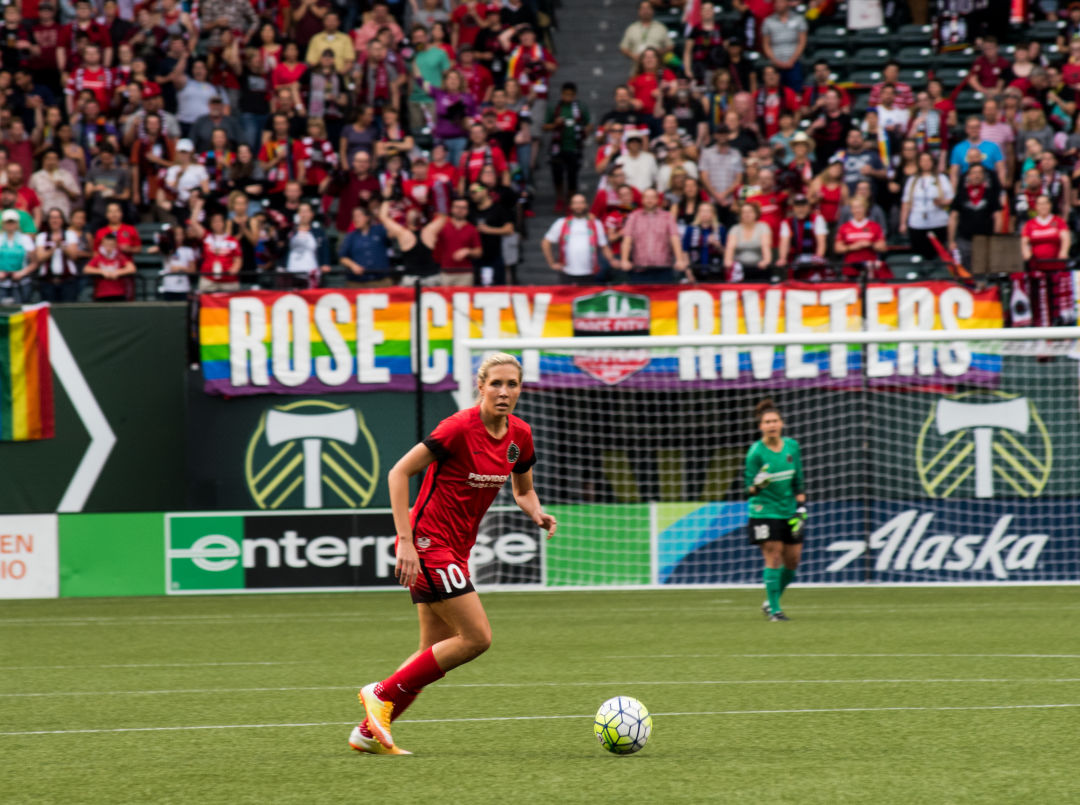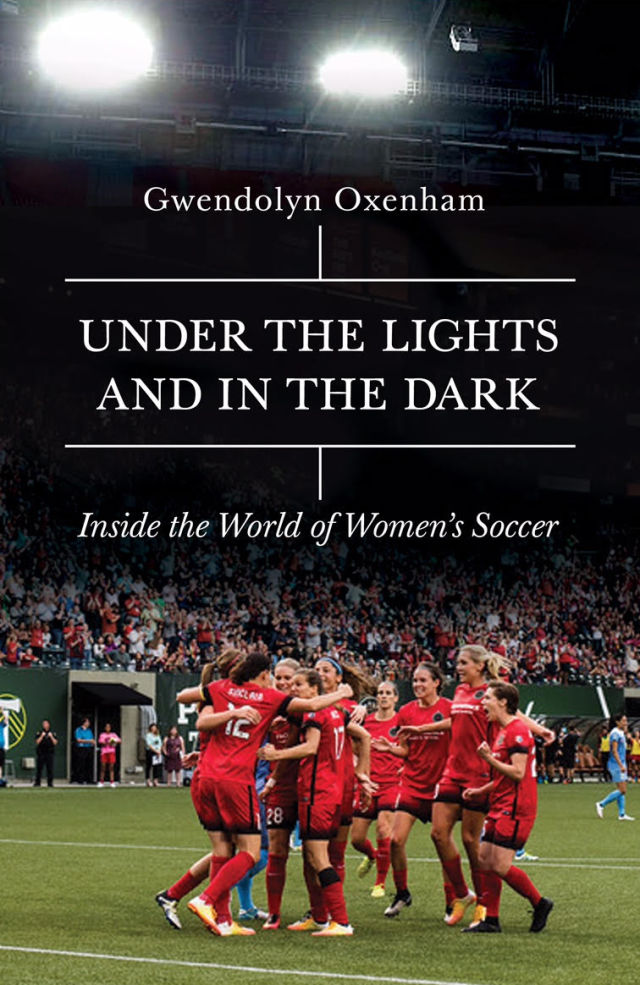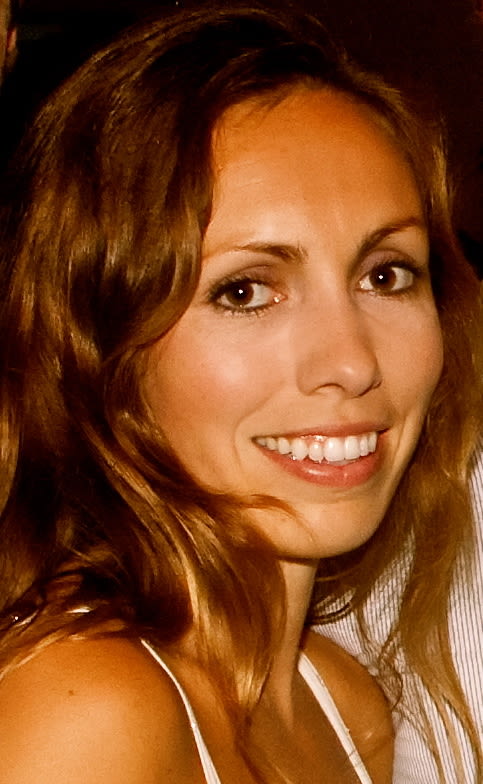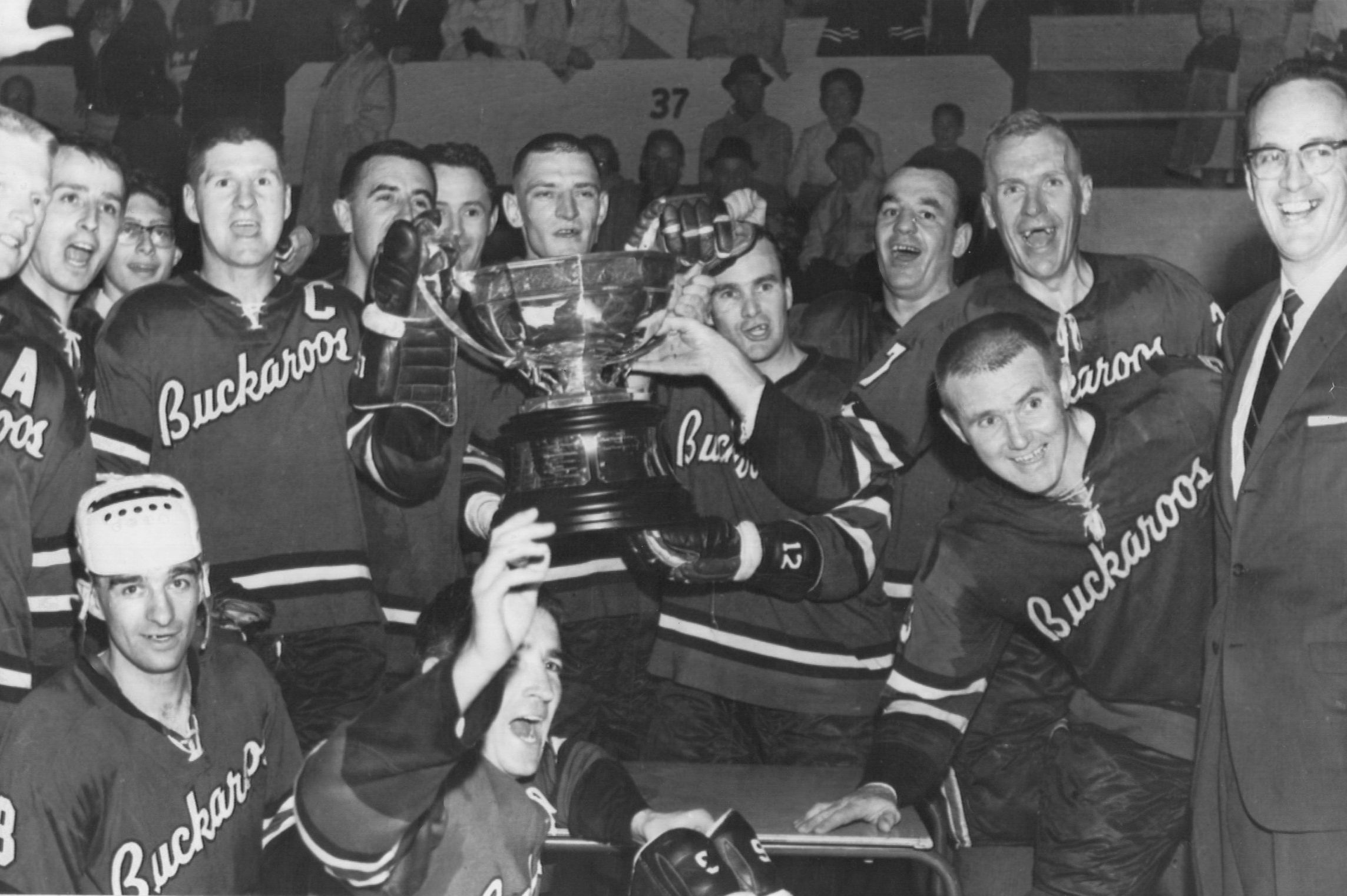Is Portland the Center of the Women’s Soccer Universe?

Portland Thorns player Allie Long will be in conversation with Gwendolyn Oxenham at Powell's on Sept 29.
Image: Courtesy Icon Books
In a past life, writer Gwendolyn Oxenham was a competitive soccer player. She played Division 1 college ball at Duke, and spent a summer playing professionally with the women's side at the legendary Brazilian club Santos FC. Her new book, Under the Lights and In the Dark: Untold Stories of Women's Soccer, offers a look at the lives of female footballers around the world, from the stories of Portland's own Allie Long and Nadia Nadim, to the women of the Homeless World Cup, to players for an evangelical Christian club in North Carolina. We talked with the author in advance of her Portland appearance at Powell's City of Books on Friday, September 29, where she'll be joined in conversation by Long.
So many of the stories in this book run through Portland. There are full chapters on Nadia Nadim, Allie Long, and the Rose City Riveters, but even stories in places like Russia and Nigeria have some connection to Portland. Why is that?
Initially, I thought it was a coincidence: But you look at it, and I'm pretty sure every woman across the world playing soccer has heard of the Thorns. It's like a beacon. It's the promised land. In the chapter "Beyond the Field," the players who [left the game] said, "I would have kept playing for nothing, for no money, if I could have played in that atmosphere."

Image: Courtesy Icon Books
What does the women's game look like in other places?
What I'm so fascinated by in the women's game is the lengths players are willing to go to in order to pursue what they love. Sometimes that means traveling to Russia and playing for a coach that makes their soul crumble. Or being willing to make $7,500 a year while the rest of your friends are beginning careers—and you're working at Starbucks on the side.
You're working your ass off even though no one's watching, and you're not getting paid, and you're frequently up against very hard things. That to me is both depressing and inspiring, in that they're playing solely because they love the game, and they're trying to advance the game and make things different for the next generation.
For American and European players, choosing soccer often means scraping together a living on what many fans consider shockingly low salaries. But for female players from other parts of the world, soccer can be a way out of poverty.
There's so much in the news about equal pay [for women], and for a US player, choosing to play often means choosing the least financially sound future. In other countries like Nigeria, though, soccer is the way out. In a country where the average salary is very small, yes, a women's soccer salary isn't huge, but it's enough. Unemployment is so high in Nigeria, so it's a job, it's a fairly stable source of income. Josephine Chukwunonye [a Nigerian national team player] was able to change the course of her entire family's life. She grew up without enough space to turn over at night, and was able to build her mom a house room by room. Even though Nigeria's plagued by all the same issues as all the other women's pro leagues, it's still the greatest opportunity they have.

Author Gwendolyn Oxenham
Image: Courtesy Icon Books
What surprised you the most in researching this book?
The evangelical Christian club [the Charlotte Eagles, a hybrid soccer team and missionary organization], that in the year 2017 asks players to sign something saying they won't engage in homosexual behavior. That kind of blew my mind.
I was also really surprised by the mothers chapter. I never realized so many of the top mothers playing at the pro level have gotten cut or traded. I was not expecting that at all.
In the chapter about [Brazilian pro footballer] Marta, you mention [Brazilian soccer celebrity] Neymar's professed admiration for her, and ask if male stars visibly supporting the women's game would change things. Do you think that's the case?
I do think it would make a difference. We've got to find a way to explode into mainstream culture. Neymar is an icon. You see your icon supporting and following something, and it spreads. I teach at a college campus, and none of my class even knows there's a women's pro league. And if you can't get yourself in the national dialogue, you can't get sponsors. If you can't get sponsors, you can't get the media involved.
The guys are stars, so when you see your star changing conversation, that trickles down. Diego Valeri is a great example of that. He's always tweeting about the Thorns. Not that the Thorns need him to tweet, but he's a father and a man and a player who's interested in these incredible players, and I do think it makes a difference.
This is a book about women's soccer, but on a broader level, what is it about?
To me, it's chasing something for yourself, basically. It's women who love something and will do anything to pursue it, even if no one's watching and there's no money at stake. It's the concept of loving something for the beauty of it without any reward.
Gwendolyn Oxenham in Conversation with Allie Long
7:30 p.m. Fri, Sept 29, Powell's City of Books, FREE




